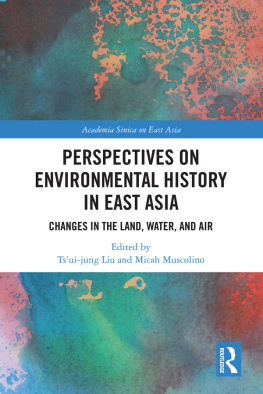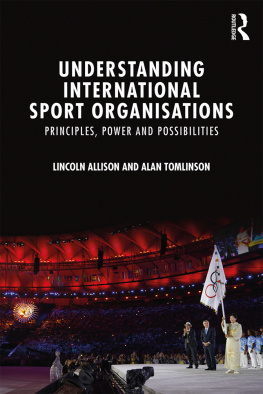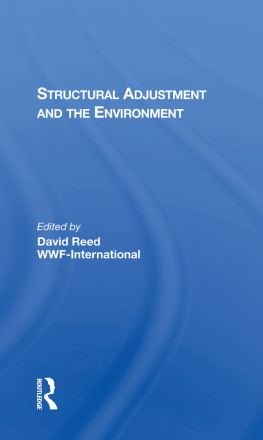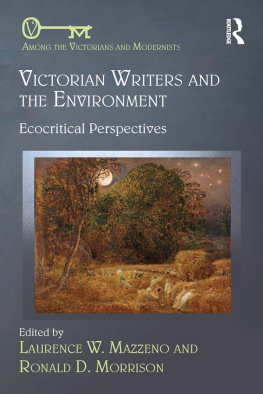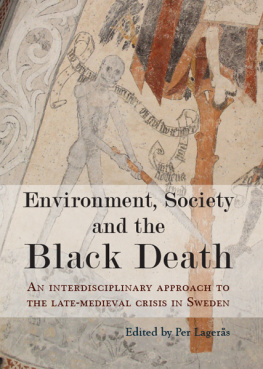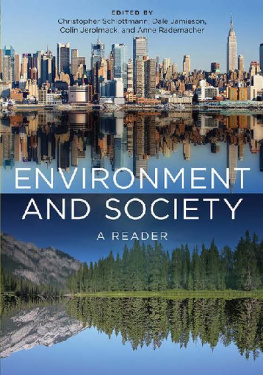PERSPECTIVES ON THE ENVIRONMENT 2
Perspectives on the Environment 2
Interdisciplinary research on politics, planning, society and the environment
INTERDISCIPLINARY RESEARCH NETWORK ON THE ENVIRONMENT AND SOCIETY
Edited by
Sue Elworthy
Kevin Anderson
Ian Coates
Piers Stephens
Matt Stroh
First published 1995 by Ashgate Publishing
Reissued 2018 by Routledge
2 Park Square, Milton Park, Abingdon, Oxon, OX14 4RN
711 Third Avenue, New York, NY 10017
Routledge is an imprint of the Taylor & Francis Group, an informa business
Copyright Interdisciplinary Research Network on the Environment and Society 1995
All rights reserved. No part of this book may be reprinted or reproduced or utilised in any form or by any electronic, mechanical, or other means, now known or hereafter invented, including photocopying and recording, or in any information storage or retrieval system, without permission in writing from the publishers.
Notice:
Product or corporate names may be trademarks or registered trademarks, and are used only for identification and explanation without intent to infringe.
Publisher's Note
The publisher has gone to great lengths to ensure the quality of this reprint but points out that some imperfections in the original copies may be apparent.
Disclaimer
The publisher has made every effort to trace copyright holders and welcomes correspondence from those they have been unable to contact.
A Library of Congress record exists under LC control number: 94074547
ISBN 13:978-1-138-32159-5 (hbk)
ISBN 13: 978-0-429-45247-5 (ebk)
Contents
Michael Jacobs
Simon Shackley
Les Levidow
Elizabeth Shove
Ian Coates
se Berit Grdeland
Raymond Bryant
Ali Parsa and William Penrice
Bob Evans
Mark Baker
Julia Meaton and Margaret Anderson
John Barry
James Meadowcroft
Ute Collier
Guide
Margaret Anderson is a senior lecturer in the Department of Environment, Wye College, University of London.
Mark Baker is a PhD student at Aston Business School, Aston University.
John Barry is a lecturer in the Politics Department of the University of Keele.
Raymond Bryant is a lecturer in the Department of Political Studies, School of Oriental and African Studies, University of London.
Ian Coates is a PhD student in the Sociology Department, University of Bristol.
Ute Collier is a lecturer in the Division of Environmental Sciences, University of Hertfordshire.
Bob Evans is a senior lecturer in the School of Land Management and Urban Policy, South Bank University.
se Berit Grdeland is a PhD student at the Institute of Soviet and East European Studies, University of Glasgow.
Michael Jacobs is a research fellow at the Centre of Environmental Change, Lancaster University
Les Levidow is a research fellow in the Centre for Technology Strategy, the Open University.
James Meadowcroft is a lecturer in the Department of Politics, University of Sheffield.
Julia Meaton is a lecturer in the Department of Geographical and Environmenal Sciences, University of Huddersfield.
Ali Ghanbari Parsa is the Aubrey Orchard-Lisle research fellow at the School of Land Management and Urban Policy, South Bank University.
William Penrice is Coordinator for International Relations, Wakayama City, Japan.
Simon Shackiey is a research associate at the Centre for the Study of Environmental Change, Lancaster University.
Elizabeth Shove is a senior lecturer in the Buildings and Society Research Unit, Department of Social and International Studies, University of Sunderland.
Putting together a book such as this one requires the high level of cooperation and sharing of ideas that IRNES exists to foster. First we must thank Avebury for their continued support and encouragement. Sarah Markham, Avebury's editor of this series, was friendly, efficient and believed that, despite all odds, the editorial team would meet the agreed deadline with an interesting book. We thank Michael Jacobs for writing the foreword, Lesley Morris for coordinating the gathering of disks from the contributors, Cheryl Benton for typesetting and, of course, the authors who not only adapted their papers to fit the scheme of the book in terms of intellectual coherence but also performed skilled wonders on their computers adjusting to the agreed format.
We thank the ESRC for the financial support given to IRNES, and GEC for its most welcome contribution to the conference finances. Warwick Research Institute undertook the typesetting of this volume, for which we are most grateful.
Declaration
The views expressed within the individual papers of this book are those of the respective authors and do not necessarily reflect either the views of IRNES or of the ESRC.
Michael Jacobs
"The environment", Albert Einstein remarked, "is everything that is not me". This doesn't narrow the research field down very far. Fortunately, there are ways of dividing the subject into more manageable categories. In practice we may observe three types of environmental research, corresponding to three different conceptions of the environmental subject.
The first, and oldest, belongs in what we might call the natural science paradigm. As recently as thirty years ago, scientific research was practically the only kind of research there was on the environment. Originally, indeed, there was no environmental "subject" as such at all - simply aspects of biology, geology, physical geography and so on. More recently, new holistic sciences have emerged - ecology, oceanography, climatology; many universities offer more or less integrated courses in "environmental sciences". Nevertheless all these disciplines essentially treat the environment in the same way. It is a given physical thing, made up of living and non-living objects which exist in nature and whose interactions - with each other and with humankind - can be observed by the application of a positive scientific method. Increasingly, such research has led scientists to advocate specific environmental policies, drawing on more or less explicit assumptions about the desirability of different "natural" states.
In the last twenty years, and especially in the last five or six, economics has entered the environmental field, the first and much the most dominant of the social sciences. The economics paradigm also sees the environment as a physical thing, which can be observed through scientific methods. Indeed, it starts - more or less unquestioningly - from the information furnished by the physical sciences. But for economists the emphasis is on the environment's economic value. The environment, they argue, provides a range of goods and services to the economy: the provision of resources and energy, the assimilation of wastes, and various "amenities" and "life support mechanisms" such as climate regulation and the maintenance of genetic diversity. The purpose of environmental economics is to understand the ways in which these goods and services are valorised - and, where they are not, to reveal or impute appropriate economic values. By this means, economists are able to understand environmental objects and activities as economic commodities, and can locate them in the same framework as the ordinary "produced" commodities of standard economic analysis. Again, given various more or less stated assumptions about economic and political goals, conclusions for environmental policy then follow. The advantage of this approach, the economist argues, is that it understands not simply physical environmental change but its "costs" and "benefits" as well.


